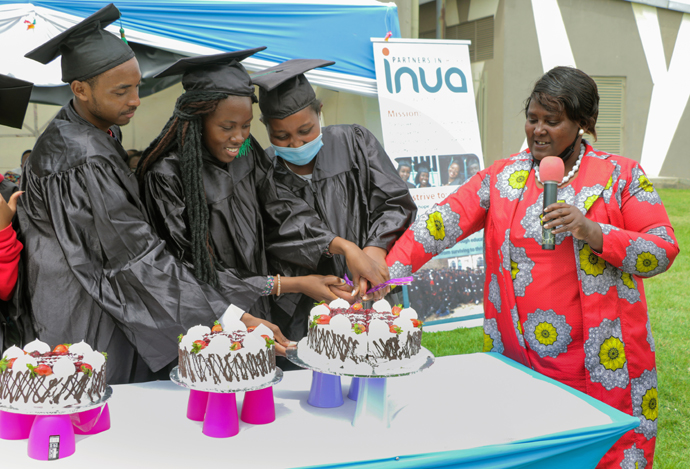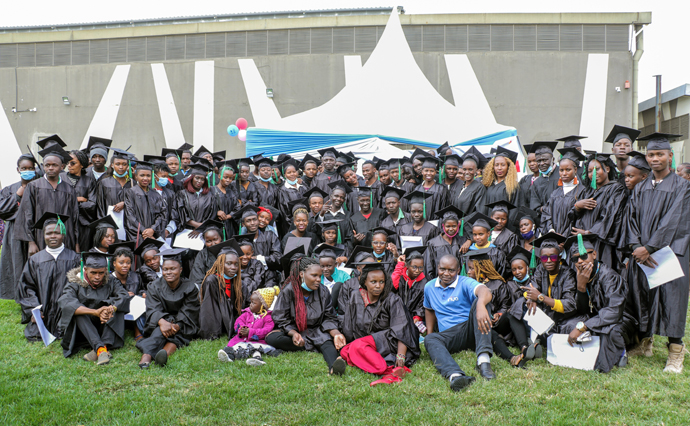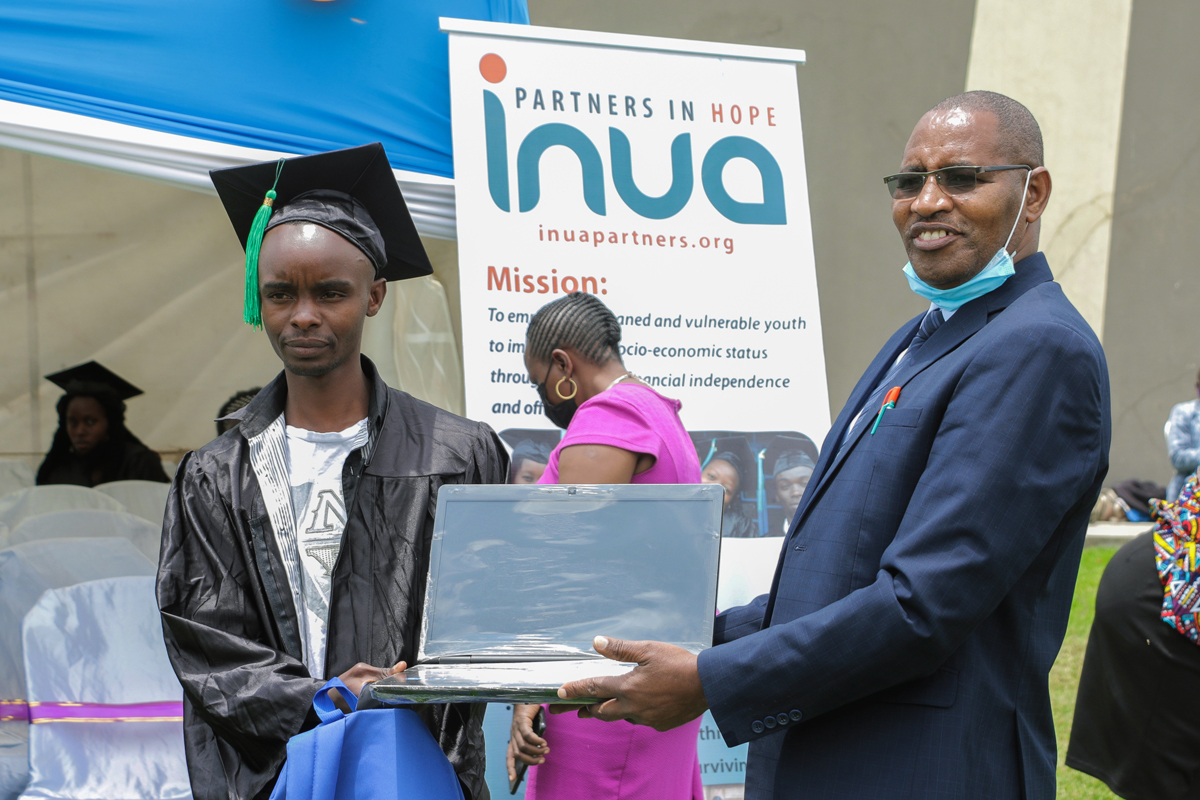Key points:
- Most youth and young adult beneficiaries of Inua Partners in Hope serve as heads of households due to the loss of one or both parents.
- Participants, ages 17 to 22, learn life skills to support themselves financially and overcome poverty and insecurity.
- Mentorships are a vital aspect of the program, which receives assistance from Trinity United Methodist Church, Naivasha, Kenya, as well as several Florida congregations.
Inua Partners in Hope celebrated the graduation of 158 orphans from its vocational education program, bringing the number of alumni to nearly 900.
The hands-on program teaches orphans and vulnerable young people various job skills such as art, carpentry, construction, dressmaking, driving, electronic repair, fashion and design, general mechanics, hairdressing, hospitality, masonry, painting, plumbing, video production and welding. Graduates are given startup kits or capital in their fields of specialty.
Along with developing life skills to support themselves financially and overcome poverty and insecurity, students receive biblical counseling and mentoring.
The Swahili word “inua” means “to lift together, raise up or elevate.”

Inua Partners in Hope was formed in 2010 by Trinity United Methodist Church in Naivasha, Kenya, and First United Methodist Church of Winter Park, Florida.
The program has a continued partnership with three Florida United Methodist congregations: Cornerstone, Naples; First UMC, Ormond Beach; and Trinity, West Palm Beach.
Most youth and young adult beneficiaries of Inua Partners in Hope serve as heads of households due to the loss of one or both parents.
How to help
For more information about the Inua Partners in Hope program, or to make a donation, visit http://www.inuapartners.org.
New graduate Solphine Nanjala, a member of the fourth graduating class, earned a certificate in baking and pastry. She recalled the hardships she faced before joining the program.
“I completed my high school studies by chance,” said Nanjala. “There was no means for me to join college, and the frustrations led to my depression. When I heard about the Inua program, I left my home and walked (more than four miles) in search of the center.
“Today, I have received all the needed baking tools to start a cake shop,” Nanjala continued. “My prayer is that more people can support the Inua program that is empowering young people in Kenya, particularly girls like me.”
During the September graduation ceremony, Leah Kamau, principal of the Nakuru County Technical Vocational Training Institute, reminded graduates to anchor their hopes in God and emphasized discipline as the key to success.
“Vocational training is the need of the hour,” Kamau said. “The abilities you've learned will be excellent in establishing … a solid career.
“However, self-discipline will be an asset to your job path,” she added. “These talents will give you an advantage over others in the employment market.”
Pronouncing the graduates as “job-ready,” Kamau reminded them “to put God first and reciprocate the kindness you have received.”

Many former graduates are doing that through Inua’s mentorship program. Alumni help guide students, providing a learning and development partnership through on-the-job training at their enterprises.
Boniface Njoroge, an alumnus of Inua’s first cycle, lauded the mentorship aspect.
“I have mentored five apprentices at my mechanic workshop,” he said. “I am currently sponsoring the education of two students in high school. This has been made possible by the skills acquired from the Inua program.”
Patrick Ndonga, business programs manager for Inua, noted that 26 students earned high marks in a trade test through the National Industrial Training Authority.
“The excellent performance,” Ndonga said, “is a true reflection of the high competencies possessed by Inua program graduates. We do not doubt that our graduates are ready to make a real difference in their communities.”
James Kiiru, an Inua Partners in Hope board member, reminded graduates to “envision where you want to be: happier, more successful, fit, healthier, in love.”
Mia Thomas, who chairs the U.S. board of Inua Partners in Hope, wrote well wishes to the graduates.
“You have all accomplished so much already,” she said. “We are very proud of each of you. We know that you will continue to do greater things. No matter how small or large, they are big and beautiful in God’s eyes.”
The Rev. Paul Matheri, Inua Partners in Hope program director, said the ministry offers socioeconomic empowerment to young adults ages 17 to 22.
“We restore hope to our students through Christ and society,” he said. “Let us look for opportunities to speak and act.”
Next on the agenda, Matheri said, is the Inua Agricultural Training and Empowerment Center to broaden and solidify vocational education. Pointing to the need to expand the program beyond Naivasha to other towns such as Gilgil, Maimahiu and Kinungi, he said the COVID-19 pandemic had hindered the program’s short- and long-term goals.
“We’ve had to reduce the number of beneficiaries from 200 to 160 students in the last two cycles due to financial challenges,” Matheri said. “There is a growing demand of raising the amount allocated for startup kits due to the high economic standards. Unfortunately, we are unable to match the demands in the job market.”
Maiga is a communicator for the Kenya-Ethiopia Conference.
News media contact: Julie Dwyer at newsdesk@umnews.org. To read more United Methodist news, subscribe to the free Daily and Friday Digest.




